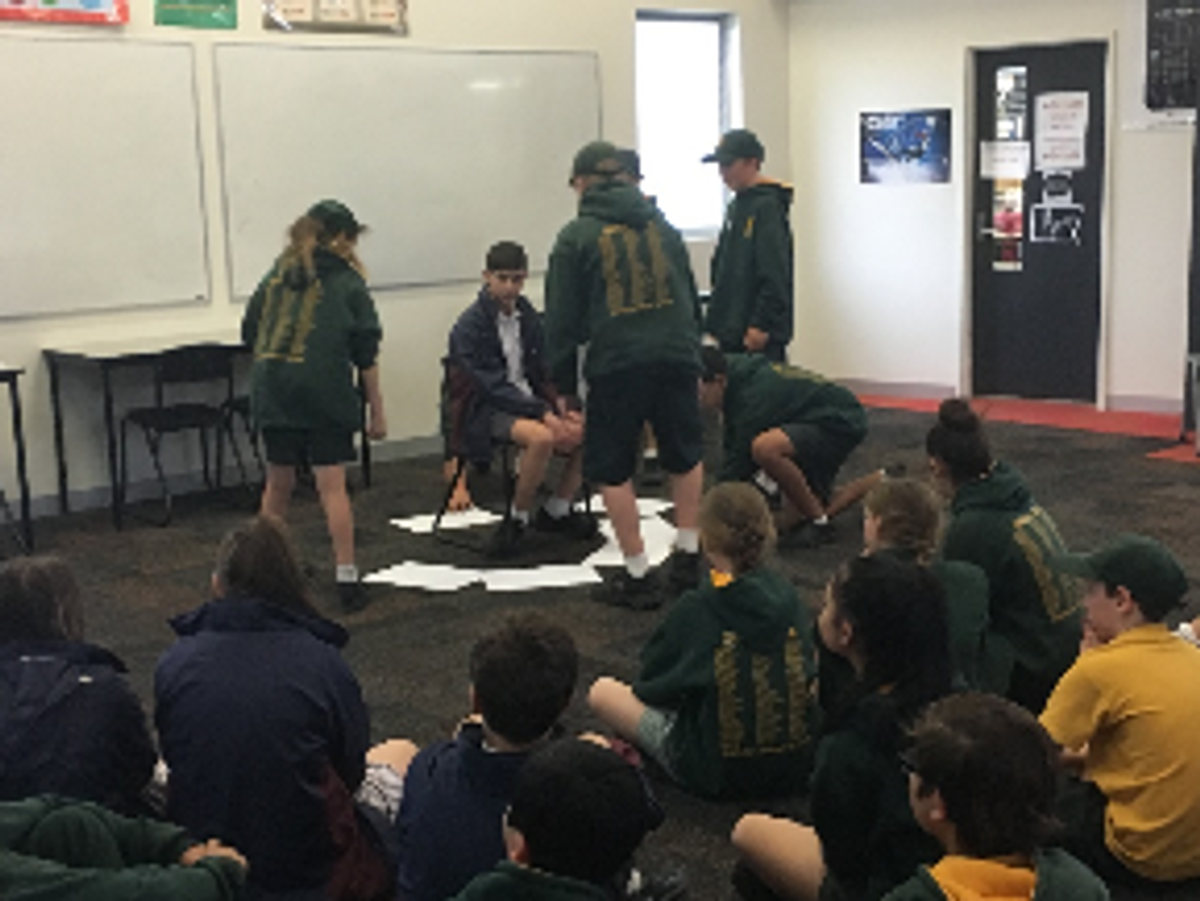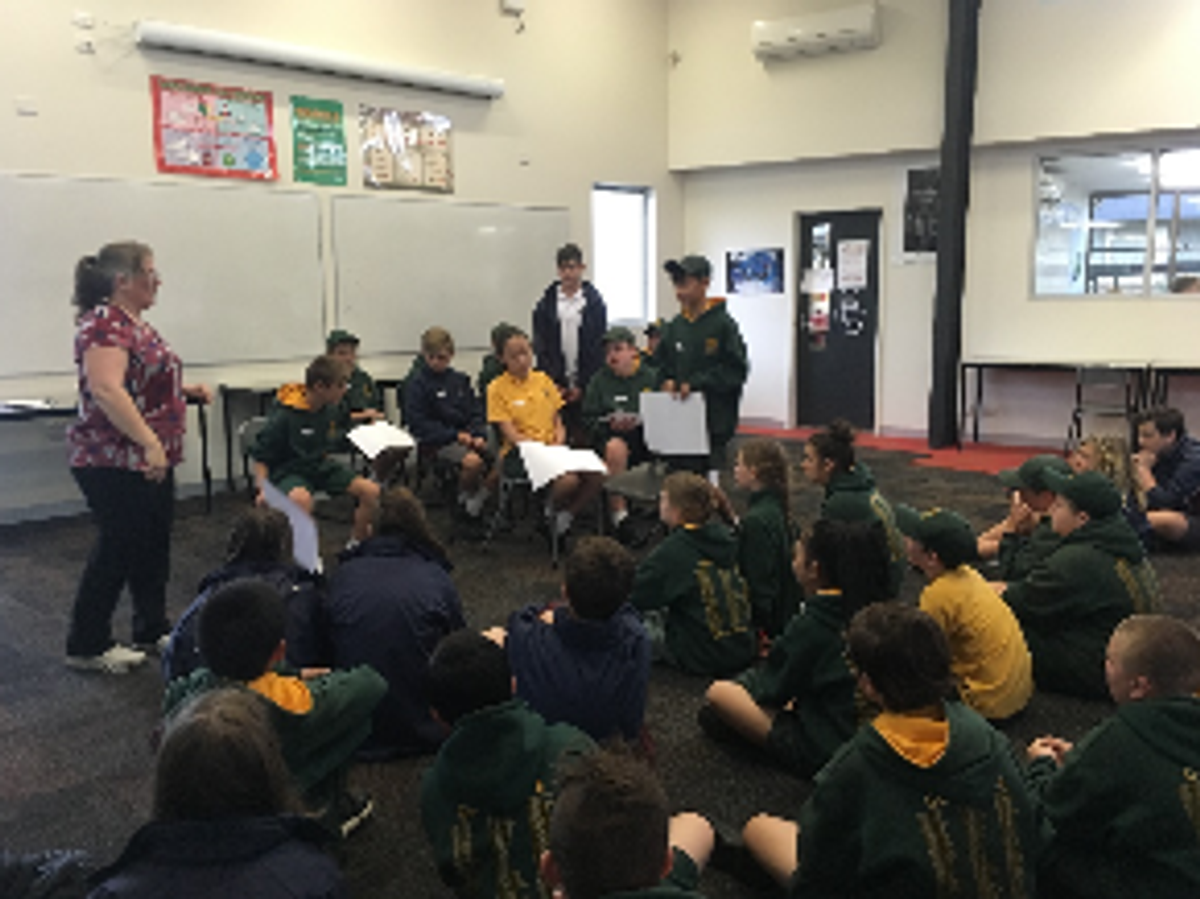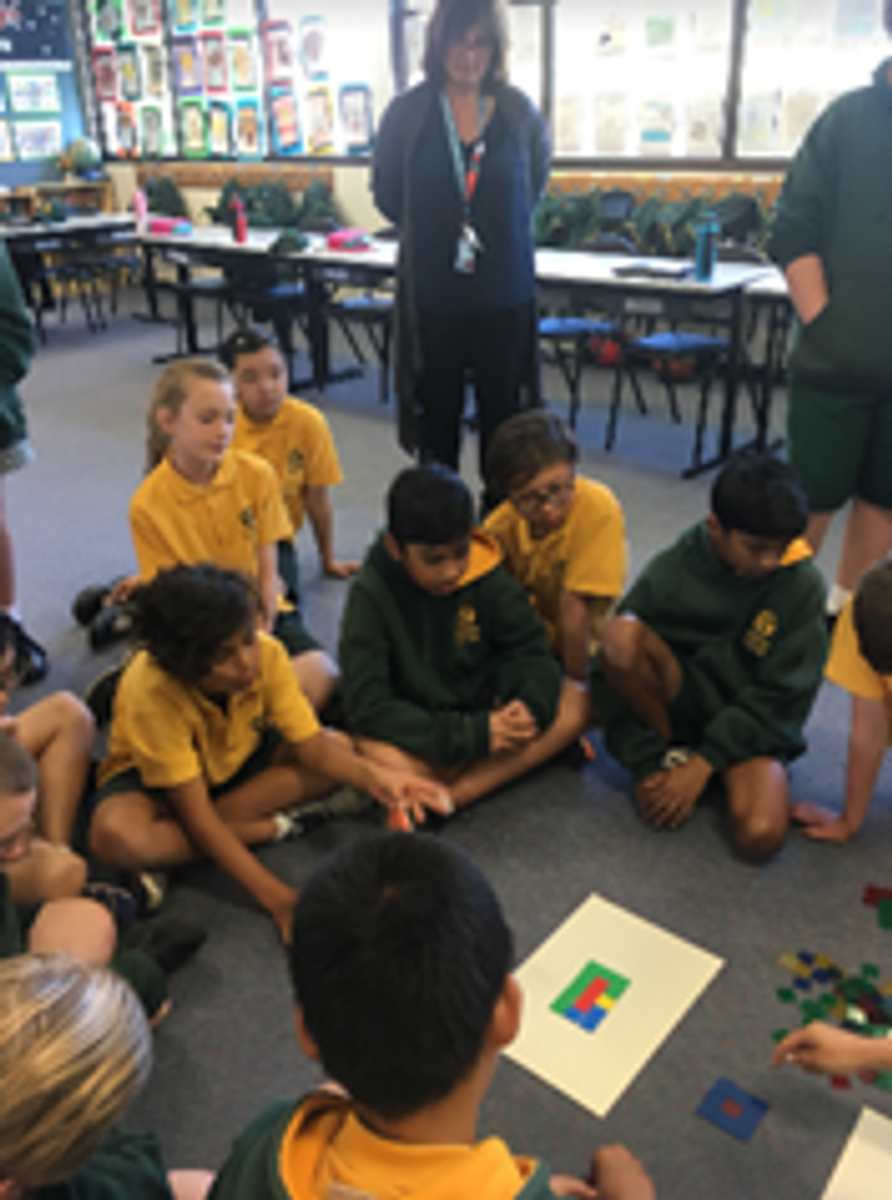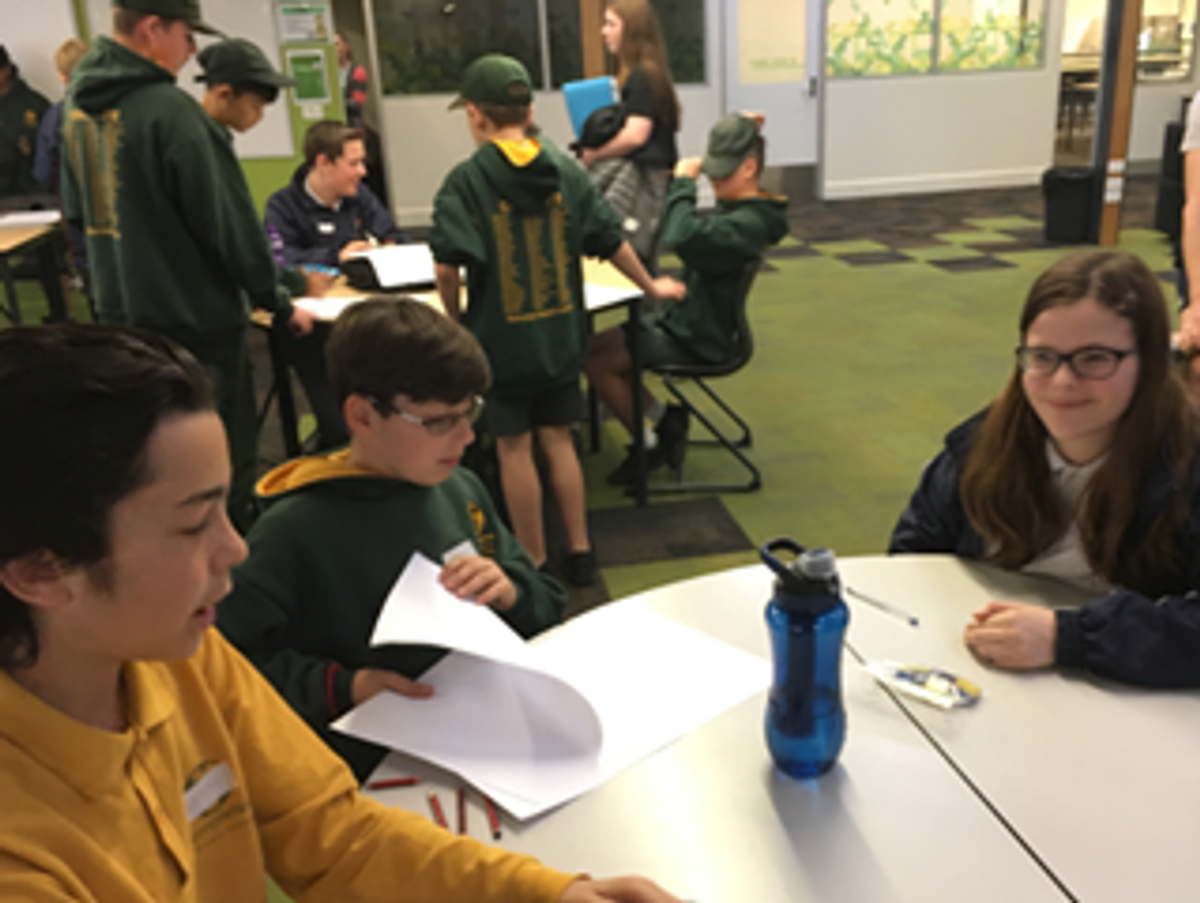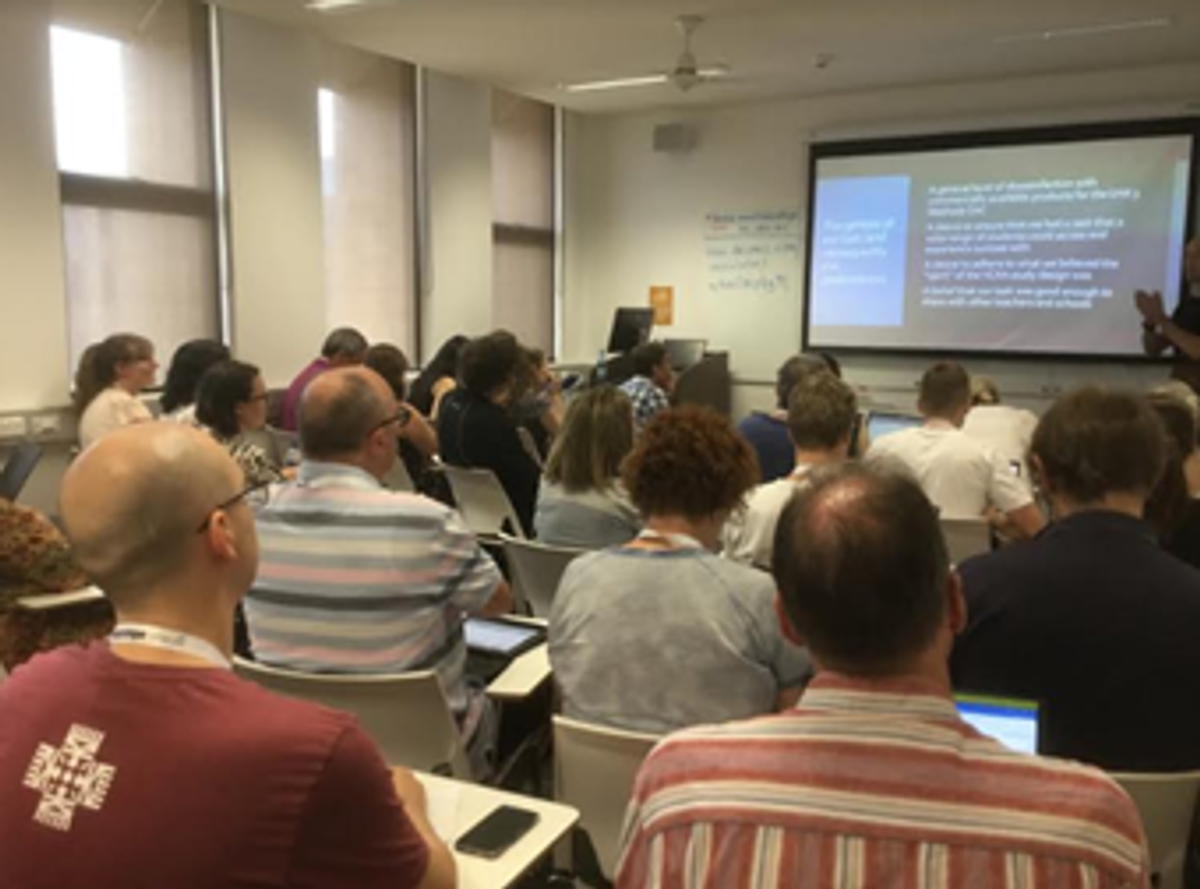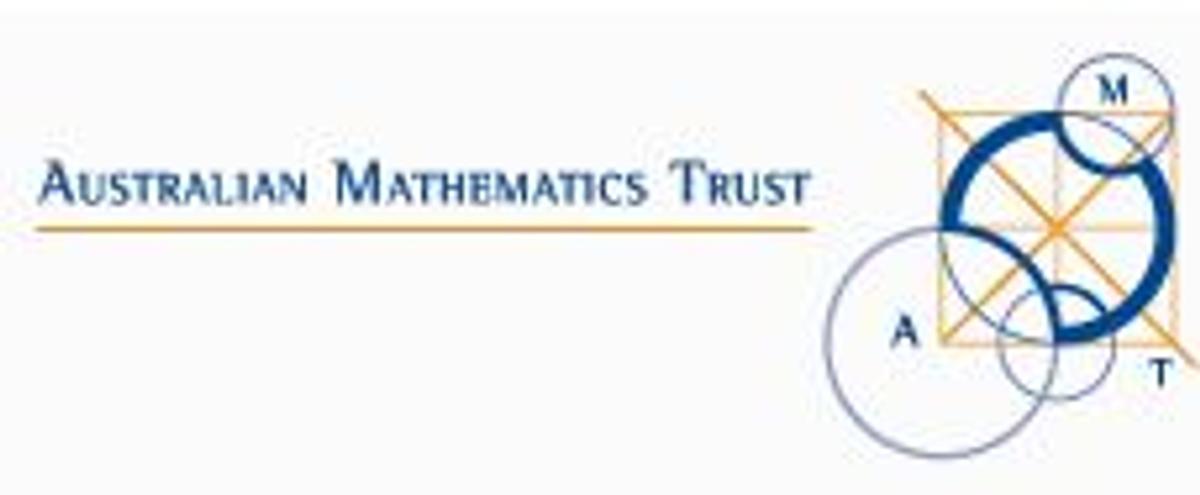Maths
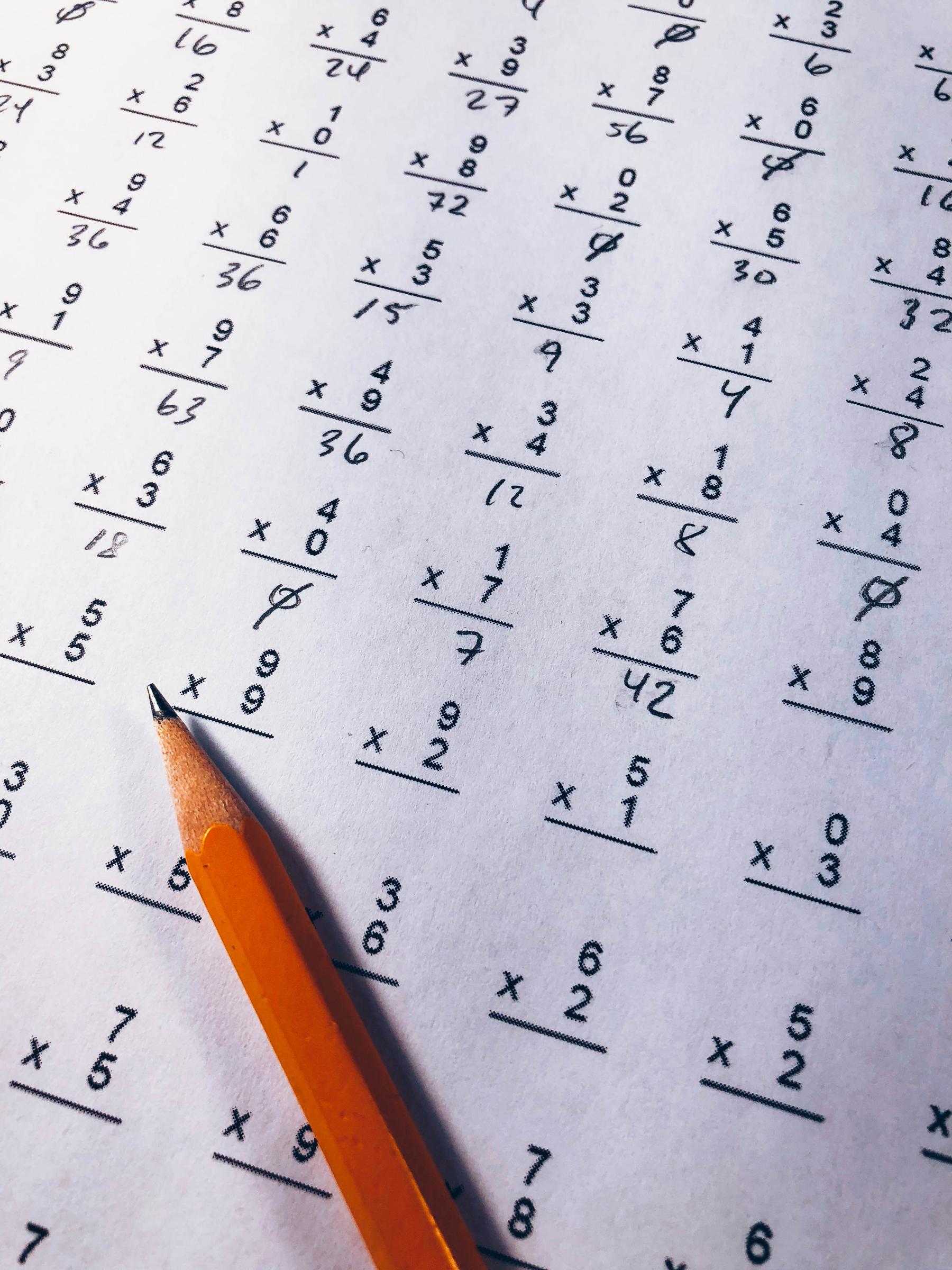
Maths Review
Collaboration is a skill that we are trying to develop in Wantirna College. During the last term, members of the Maths Team and some of our Year 7 students have clearly demonstrated this.
Outer East Transition Project
Mrs Kylie Armstrong, Mrs Zoë Carolan and 7B have been actively involved in the Education Department’s Outer East Transition project where we worked in collaboration with Mr Adam Williams and Ms Kristy Phang and their students from Templeton Primary School. The teachers co-developed a unit of work and taught this across the three classes
Templeton students came to Wantirna and were introduced to the project and then worked in small groups with a student coach from 7B. The students in 7B had already been working on peer coaching within their class as part of Wantirna’s Teachers’ Professional Learning Teams.
“On one Tuesday in term four, we had some year six Templeton students come to our Wantirna College. We had little groups, one Wantirna student and two Templeton students, we did a maths problem Ms Armstrong came up with a story that her daughter wanted a flowerbed and we made different measures and made our own questions at one point. This experience gave my peers and I to have a good understanding of the students and was a great opportunity to talk about how they feel about high school, I think they’re going to love it.” James, 7B.
“On the 16th of October, 7B was chosen to mentor two classes of year six Templeton Primary School Students. The year seven’s taught the Templeton children about solving problems with unknown numbers. All of the students had a blast while working productively together to solve the questions.” Michelle, 7B.
The project was a learning experience for all teachers and we hope to continue working together to better improve learning outcomes for all our students.
The Mathematical Association of Victoria (MAV) hosts a two day conference at La Trobe University, Bundoora, every December. We regularly send our Maths teachers to engage in new ideas and learning from colleagues across Australia. This year the Wantirna Maths Team sent three teachers to share our own experiences with other teachers from across Victoria and Australia.
Mathspace, one of our online maths programs, hosted a discussion forum looking at “Technology and online learning environments and the impact on student outcomes.” at the conference. Mrs Kylie Armstrong was invited to be part of the panel discussion, along with a teacher from Haileybury College and a Mathspace representative. Participants ranged from teachers in University bridging courses, inner city schools, suburban and country schools, both private and public schools. We discussed the challenges and benefits of technology in the classroom, strategies different schools have taken to help students manage their screen use and some of the innovative approaches we have taken to support our learners.
“Just a final massive thank you to both of you for being part of the panel at MAV. I think it was a huge success and the engagement of the people there showed that.” Craig Blake, Schools Liaison for Victoria, South Australia and Northern Territory.
Mr Mark Oudshoorn and Mrs Zoë Carolan presented their Year 12 Methods SAC (an investigative assessment piece). Year 12 SAC writing is time consuming and can be very difficult to ensure that all the VCAA regulations are met. This year we were very proud of the SAC we created as we believed it truly “captured the spirit” of a mathematical investigation. We presented on both days of the conference and had very favourable feedback from the 60+ teachers that chose to come to our session.
“Great job on taking the risk of creating something of a new style. Also, thanks for your willingness to share all of your hard work with us.”
“Excellent presentation. Thank-you for being willing to share your SAC, as you have done all the hard work and then are giving this away. Your SAC is MUCH better than any I have purchased :) “
“Thank you for the fabulous session at MavCon. I found it very good and can't wait to improve my own tasks - inspired your terrific work.”
Celebrating Success in Maths in 2018
In addition to the class academic awards, year level awards and VCE subject awards, 51 students participated in one of three levels of the Australian Mathematics Competition run by the Australian Mathematics Trust. Students were required to answer a set of 30 questions in 75 minutes. The questions are broken into three levels of difficulty and get progressively harder throughout the competition paper.
Congratulations to these 24 students who achieved a Credit, ranking them in the top 50% of their cohort:
Year 7: Leon Konstan, Spencer Berry, Lucinda Poutet, Ned Mulholland, Caden Janetzki, Elijah Keam
Year 8: Adam Mazzeo, Malay Vyas, Isaac Ngo, Nicole Lee, Johnny Yuan, Jamie Soo, Maxamillion Chisholm, Malini Waiwitwuthiwong
Year 9: Richard Ha, Asher Janetzki, Dechen Phuntsok, Tommy Dam, Ashleigh Papic, Adrina Low, Sarah Billingham
Year 11: Jenny Nguyen, Hannah Maclean, Kerry Lam
5 students achieved a Distinction, which meant they were all ranked in the top 20% of their cohort. Congratulations to:
Year 7: Lachlan Lim
Year 8: Chloe Jolme
Year 9: Eric Lang, Alex Hui, Samantha Burchett
Our top performing student was Tain Corless, from Year 8. He achieved a High Distinction, and received a percentile ranking of 98, placing him in the top 2 percent of all students in his cohort. Tain answered 23 of the 30 questions correctly. Congratulations on your achievement, Tain!
Planning for Maths in 2019 – please help us to help you
Maths Boost
The great team of Maths Teachers run Maths Boost every Tuesday 3:30-4:30 in Rees House. This is an opportunity for students to:
- catch-up with missed learning
- get help with topics that they are struggling with
- a place to study alone or with a study group where you can access teachers, if required
- develop summary sheets/logbooks
- use the internet to access Mathspace
- play maths games – such as Monopoly, Rummikub, Uno, Yahtzee, Rubik’s Cubes
Calculators
Year 7-10 students should have access to a scientific calculator for use in maths classes, at home and during assessments. A mobile phone is NOT a suitable alternative.
We are continuing our trial of Mathematica in Year 9 and extending into Years 8 and 10. Mathematica is currently a free alternative technology to the hand-held TI nSpire CAS calculator that we have previously used in Years 9 and 10. We have had some technical issues with the installation of Mathematica during 2018, primarily for students with BYOD devices. Please watch out for installation instructions on Compass next week, and support your child if they need to install at home.
VCE Maths students (excluding Year 11 Foundation) will still need to use a TI nSpire CAS calculator. Students who do not have a CAS calculator are unable to satisfactorily meet Outcome 3 of any of the VCE Maths’ studies, so it is essential that they have regular access to a device both in- and out of class and for assessments.
Workbooks/Logbooks/Note taking
It is important that all students have at least one book to use for working in their Maths classes. Students cannot efficiently write maths methodology on their computers and will need to write by hand on many assessments. Grid books are more useful than a lined exercise book as students can line up their working and have a starting point for graphs/tables.
Many teachers will provide notes on the whiteboard during whole-class instruction, but it is not expected that students write everything in their books. Alternative notes should be available on the OneNote, so that students may refer to these during individual study and/or revision time. We hope that once students have practised and embedded a skill, that they will write fewer summary notes, or they write their own version of notes/examples that make sense to them.
Mathspace
We do NOT use a textbook in Years 7-10. We ask that ALL students have access to Mathspace – this costs $20 and is purchased through the student’s Mathspace account at the end of February. Teachers will use Mathspace to support formative assessment of students to enable them to diagnose where they need to provide support/extend the student in new learning. It is used as a homework tool to ensure regular skills practice and may also be used to assess students at the end of a topic. Mathspace also has an online interactive textbook for grades 3 to 12.
Zoë Carolan
Leader of Whole School Mathematics and Numeracy

